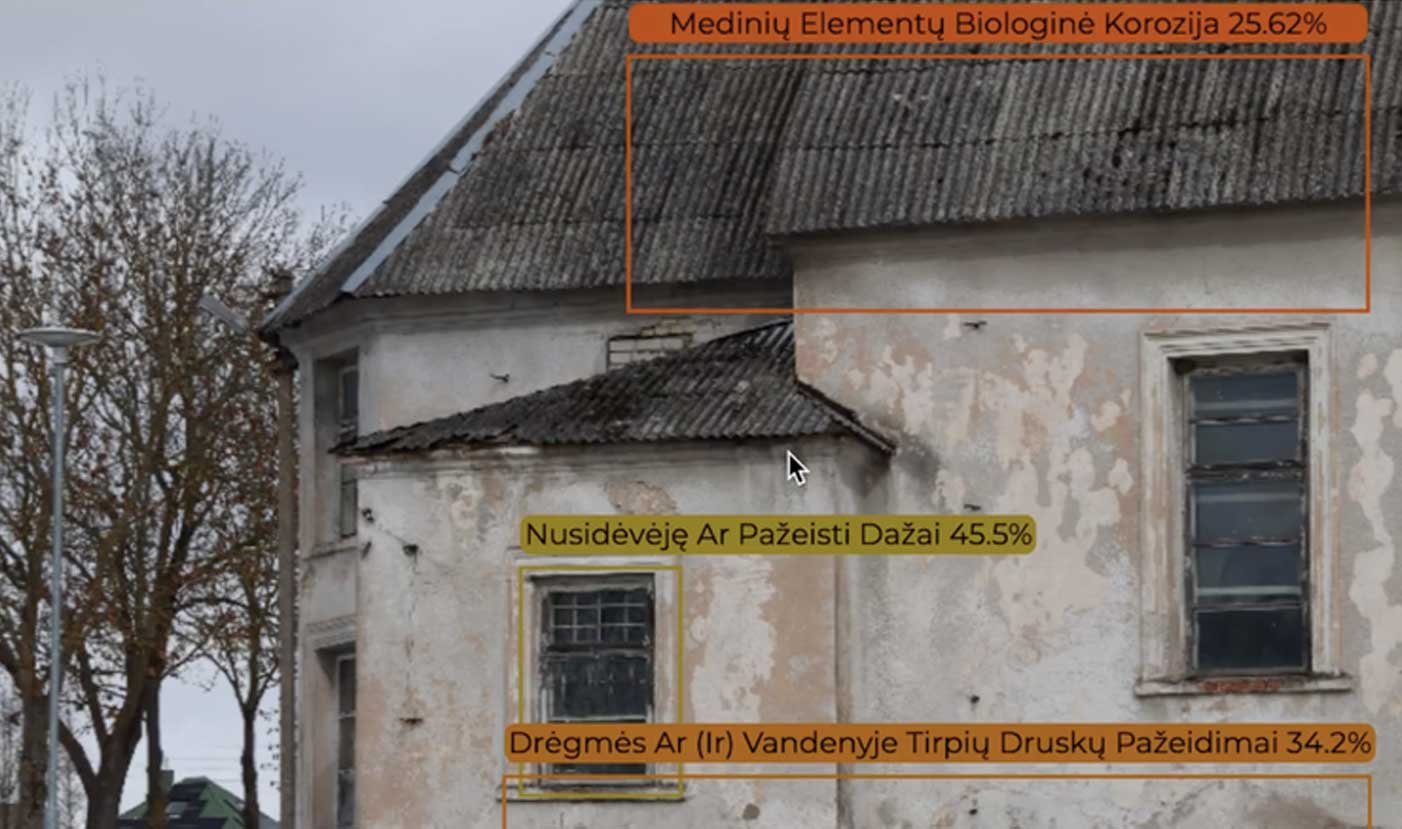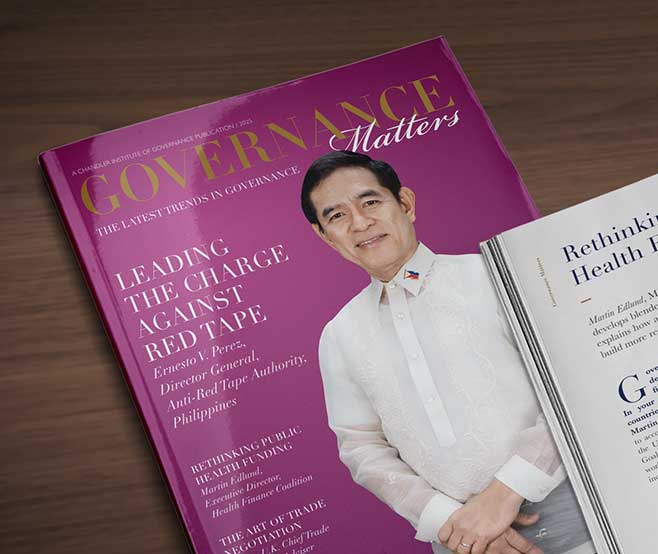Inside Mission Control
Any national leader needs a strong team around them to execute their goals and put their policies into practice. With the benefit of his extensive experience at the highest levels of the British government, Alun Evans shares how to build a great leader’s office.
Lorem ipsum dolor sit amet, consectetur adipiscing elit, sed do eiusmod tempor incididunt ut labore et dolore magna aliqua. Ut enim ad minim veniam, quis nostrud exercitation ullamco laboris nisi ut aliquip ex ea commodo consequat. Duis aute irure dolor in reprehenderit in voluptate velit esse cillum dolore eu fugiat nulla pariatur.
Heading 1
Heading 2
Heading 3
Heading 4
Heading 5
Heading 6
Lorem ipsum dolor sit amet, consectetur adipiscing elit, sed do eiusmod tempor incididunt ut labore et dolore magna aliqua. Ut enim ad minim veniam, quis nostrud exercitation ullamco laboris nisi ut aliquip ex ea commodo consequat. Duis aute irure dolor in reprehenderit in voluptate velit esse cillum dolore eu fugiat nulla pariatur.
Block quote
Heading 6
Ordered list
- Item 1
- Item 2
- Item 3
Unordered list
- Item A
- Item B
- Item C
Bold text
Emphasis
Superscript
Subscript
When he left No 10 Downing Street after more than a decade as the U.K.’s Prime Minister, Tony Blair commented, “It is an irony of political leadership that you often start at your most popular but least capable, and end at your most capable but least popular.” He is far from the only leader of a national government to have reflected on their frustration that they were not able to achieve as much as they had hoped during their early years in power. Why is that, and is it possible for politicians to learn to be better leaders in advance of achieving power? If so, how? And how could this journey of learning be sustained and built on while in office?
In countries where the constitution limits the length of executive leadership, achieving lasting change early on is a political imperative. In his later writings, Blair himself articulated five points for effective national leadership. These comprised: a clear set of guiding principles to prevent drift and short-termism, a capable and supportive Cabinet, strong political links both within and beyond their own party, a robust and effective communications function, and the recognised legal authority for the tasks of governing through the political and parliamentary systems.
Successful Leadership is a Team Game
To achieve these, the individual elected to executive office must demonstrate abundant personal leadership qualities. However, while such skills are essential, they are not sufficient. A leader also needs good structures and the right architecture of government. That begins with a strong leader’s office, the top team around them that can support them in preparing for power, making the transition to leadership, and delivering their agenda once they are in charge.
In my extensive research of leaders’ offices, I have focused on analysing the key factors in designing and running an effective and efficient operation. Whilst this is obviously not a guarantee of success, a well-functioning office is a prerequisite for any effective leadership. A weak support structure will undoubtedly hamper the leader’s prospects.
My observations have been drawn mainly from the U.K. context, but they apply equally to presidential offices and those of national leaders elsewhere in the world, including in both developed and developing countries. Arguably, in nations where the administrative systems and civil service are less developed, the need for an efficient and proactive leader’s office is even more pronounced. Just as there are five key criteria associated with effective leadership, so there are five essential elements that make up an effective leader’s office:
- An effective Chief of Staff
- A well-managed and focused Private Office (that is, the small group of immediate and close officials who manage the leader’s administrative and policy workload)
- A dedicated team focused specifically on the rigorous prioritisation and delivery of key tasks to be achieved by the Government (sometimes called a “Delivery Unit” or “Implementation Team”)
- Dedicated support to the leader and their office on policymaking, facts, evidence, and research, together with “blue sky” thinking (sometimes called the “Policy Unit” or “Strategy Unit”)
- A tried-and-tested crisis management function that can be deployed by the leader and his or her office, as and when needed
For each of these five criteria it is possible to analyse the extent to which they are met by the leader’s office, to measure the ability of that office to function efficiently, and then to identify shortcomings within those aspects of office leadership. On the back of that analysis, it is possible to create a continuous improvement plan for the office and to track its achievement and delivery.
The Attributes of a Great Chief of Staff
“You have to be the person that says no. You’ve got to be the son of a bitch who basically tells somebody what the President can’t tell him.” So said Leon Panetta, Chief of Staff to U.S. President Bill Clinton. Unless there is one person in charge who can take difficult decisions on behalf of the leader and advise him or her, all critical decisions will end up going to the President or Prime Minister, thereby wasting the time and energy of the leader.
Blair’s Chief of Staff, Jonathan Powell, believed that it was part of his job to get the right people together without the Prime Minister to take certain decisions simply so that Blair did not have to do so. Having a Chief of Staff with political and administrative authority frees up time and space for the leader to concentrate on priorities, not potential trivia. In a cautionary tale, U.S. President Jimmy Carter personally managed the schedule for the White House tennis court bookings because he felt no one in his office was doing it well enough.
The Chief of Staff must also have well-honed political and people skills. Those widely recognised as the best Chiefs of Staff – such as Jim Baker, who served two U.S. Presidents – can engender respect from politicians and staffers alike.

Building An Efficient Private Office
An effective and well-run Private Office is essential. It must have a clear set of priorities built around what the leader wishes to achieve, and be staffed by the best available officials. It should also be as small as possible compatible with getting the work done, to aid in nimble decision-making and crisis management. To that end, the Private Office must also interact closely with the leader’s communications staff.
The Private Office should be led by a figure of absolute integrity who reports both to the Chief of Staff and directly to the leader. This ensures that the Private Office has the necessary authority, and that its leadership is able to generate respect across government. This is key to ensuring that the leader’s wishes are conveyed to all parts of the government machine.
An often overlooked role of the Private Office is a disciplined and robust diary management function. One person must be responsible for serving as the “gatekeeper”, controlling access to the leader. This is critical to ensuring the efficient use of every minute of the leader’s time.
The precise nature of the office and whether it is staffed almost entirely by career civil servants (as in the U.K.) or via a mixed system of political appointees and impartial officials – as in France and some other European countries – is less significant than its capability, focus, and efficiency.
Getting Priorities Right
Prioritisation within the overall programme for government is essential. No leader can take personal charge of every aspect of the policy agenda. As Blair himself said, “Try to do everything and you will do nothing.” By identifying and articulating the case for a few priority goals, leaders signal to the rest of government, investors, other external stakeholders, and the general public what they care about most.
Once the priorities are identified, there then needs to be a central function that reports regularly to the leader and his or her office; one which is dedicated to achieving progress, identifying and tackling blockages, and ensuring that those priorities are delivered. Under Blair, this task was managed by the Prime Minister’s Delivery Unit (PMDU), which was established at the start of his second term. Some academics and analysts have cited the PMDU as one of the key reasons why the Blair government performed better on domestic policy delivery in its second term than in its first.
Prioritisation within the overall programme for government is essential. No leader can take personal charge of every aspect of the policy agenda.
Better Research Creates Better Policy
Policy must be rooted in evidence. For a leader to achieve his or her agenda, their policymaking function needs to be able to tap into the best available analysis and research. Without it, policy development and legislative proposals will be misconceived and poorly directed, and policy renewal and the shaping of future ideas will be mismanaged, with long-term ramifications. A leader cannot be an expert in all policy areas for which he or she is responsible. Being able to rely on access to the best minds and knowledge from within government and beyond helps to circumvent this shortcoming.
Such a function does not have to be within the leader’s office itself, though some may prefer it to be so, especially if it helps to ensure close cooperation with other areas such as speechwriting that may require access to research. Other leaders might choose to rely on external institutions to provide input. This is often particularly the case in the U.S. where some of the best policy ideas are shaped and nurtured within academia and think tanks before being adopted by political leaders and public service officials.
Be Prepared for Crisis
In 2001, when Tony Blair’s government was faced with a massive outbreak of foot and mouth disease in the U.K. for the first time in 34 years, he had no crisis management system to which to turn. In the U.S. on 9/11 and shortly after, the response to those attacks was uncertain and untested. In 2005, George W. Bush’s presidency was hit badly by the unfocused and slow response to the devastating Hurricane Katrina.
All leaders inevitably face crises during their term of office. Yet they and their offices all too often appear totally unprepared for such events. By definition, it is not possible to plan precisely for individual catastrophes. However, it is possible to have a broad system in place and a leader and senior officials who have the capabilities to act nimbly in an emergency.
The best leaders ensure that their governments have a tried-and-tested crisis management function ready to swing into action and work with their office, whatever the crisis may be. Actions and far-reaching decisions at such times will often need to be made at pace and must be based on the best available advice and evidence.
The crisis management function should not be based in the leader’s office, but it needs to be able to work with and alongside it at very short notice. The most reliable method of ensuring that such systems work is by regular training and exercising in advance, coupled with robust processes for assessing risks and remaining vigilant for emerging events. Exercises routinely exist for crises such as nuclear accidents. They should become far more routine for a wider range of domestic contingencies.
Leadership is Always a Learning Process
Although there are plenty more we could add to the list, these five functions, together with their supporting processes, are the main essentials for good governance. Developing and maintaining them is a constant process of improvement. To build an effective office, the leader and their Chief of Staff must continually track and oversee each of these functions. The leader needs to be clear and diligent in establishing what they want and need from their office and ensuring that the requirements are met. If any of the functions are lacking, it is vital to take remedial action swiftly, identifying a critical path for improvement and a timespan for achieving change.
U.S. President John F. Kennedy once said, “Leadership and learning are indispensable to each other.” He was surely correct. Having the right help and support in the leader’s office cannot remove the steep learning curve that all who assume their nation’s highest office will face. However, it can help to make that process easier and ensure that executing their agenda does not start only once they feel they have got a handle on the job. As Blair and others would tell you, there is no time to waste.

Heading 1
Heading 2
Heading 3
Heading 4
Heading 5
Heading 6
Lorem ipsum dolor sit amet, consectetur adipiscing elit, sed do eiusmod tempor incididunt ut labore et dolore magna aliqua. Ut enim ad minim veniam, quis nostrud exercitation ullamco laboris nisi ut aliquip ex ea commodo consequat. Duis aute irure dolor in reprehenderit in voluptate velit esse cillum dolore eu fugiat nulla pariatur.

Block quote
Ordered list
- Item 1
- Item 2
- Item 3
Unordered list
- Item A
- Item B
- Item C
Bold text
Emphasis
Superscript
Subscript
Lorem ipsum dolor sit amet, consectetur adipiscing elit, sed do eiusmod tempor incididunt ut labore et dolore magna aliqua. Ut enim ad minim veniam, quis nostrud exercitation ullamco laboris nisi ut aliquip ex ea commodo consequat. Duis aute irure dolor in reprehenderit in voluptate velit esse cillum dolore eu fugiat nulla pariatur.
Endnotes
- Item 1
- Item 2
- Item 3


Alun Evans CBE spent 30 years as a U.K. civil servant, including 20 years in the senior civil service. He served as Head of Strategic Communications at 10 Downing Street under Prime Minister Tony Blair, and as Director of Communications to the Deputy Prime Minister, John Prescott. He was later Head of the U.K. Government’s Scotland Office during the 2014 referendum on Scottish independence. From 2015 to 2019 he was Chief Executive of the British Academy, following which he completed his Doctorate on the history of Private Offices at Queen Mary University of London. Since 2021, he has been a writer and political consultant specialising in the operation of prime ministerial and presidential offices. He is also a Non-Executive Director of the Wales Office.
Lorem ipsum dolor sit amet, consectetur adipiscing elit, sed do eiusmod tempor incididunt ut labore et dolore magna aliqua. Ut enim ad minim veniam, quis nostrud exercitation ullamco laboris nisi ut aliquip ex ea commodo consequat. Duis aute irure dolor in reprehenderit in voluptate velit esse cillum dolore eu fugiat nulla pariatur.













